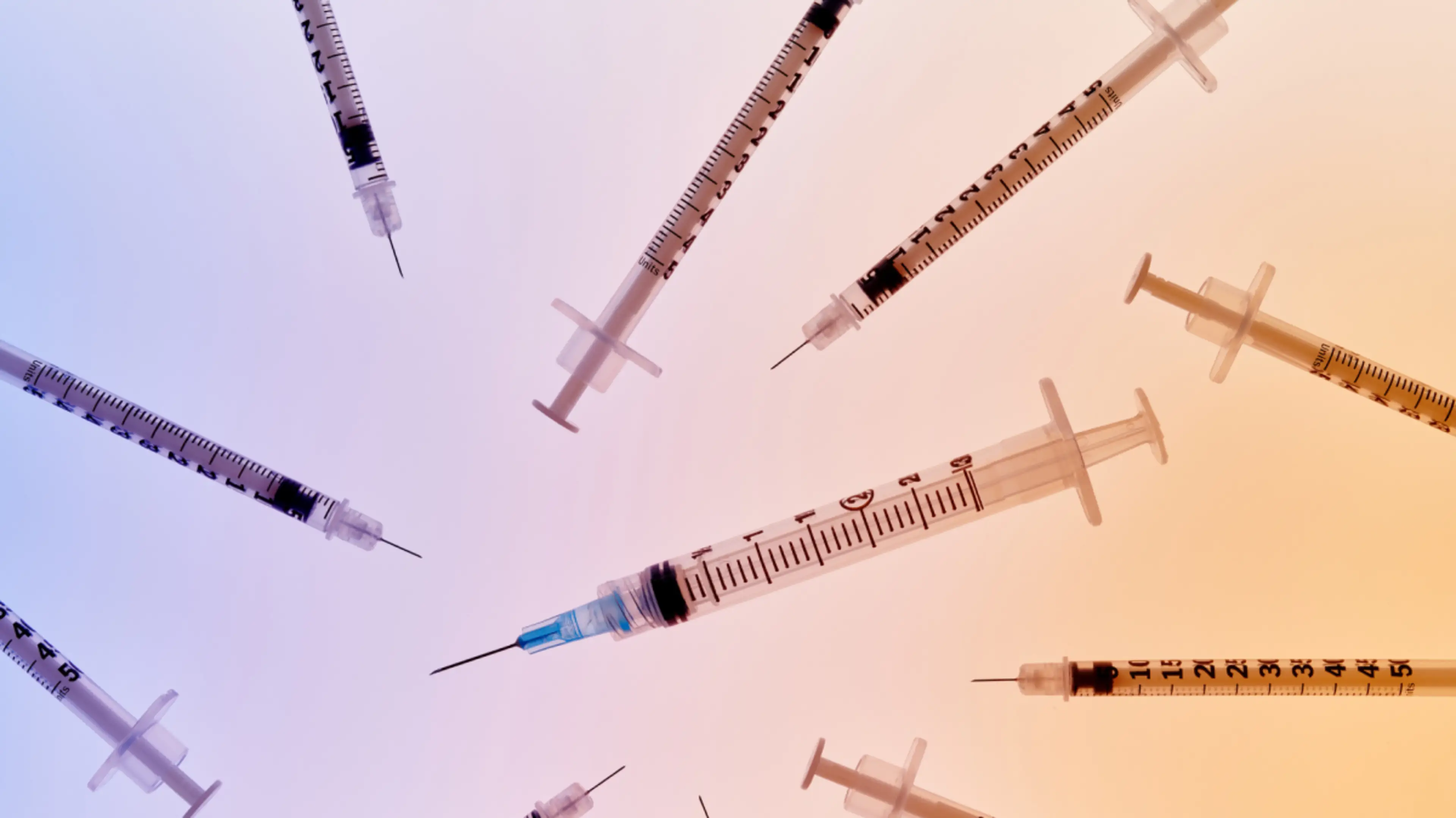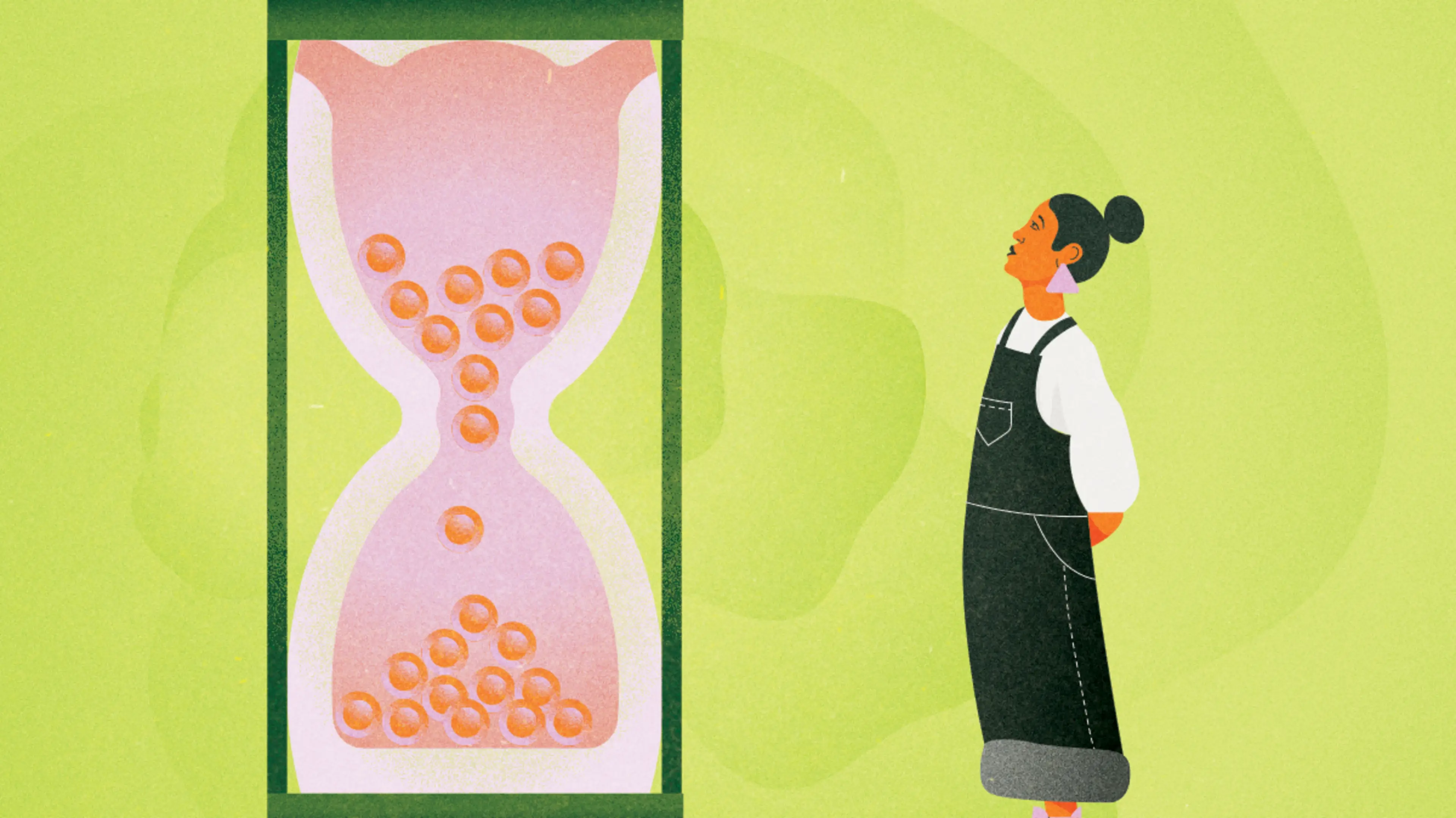If going through IVF is like running a marathon, the shots you have to give yourself every day are the long practice runs in freezing rain—definitely necessary, but probably not your favorite part.
When you start injections for an IVF cycle, you’re told you must do your shots at the same time every day to maintain a consistent hormone level. It makes sense how important this is—the medication is responsible for manipulating your body into growing as many eggs as possible. Plus, you (or your insurance, if you’re lucky) have paid thousands of dollars for the pleasure of receiving dozens of injections in a two(ish)-week span. So you’ll likely want to do everything you can to follow your doctor’s guidelines.
But of course, life loves to throw us speed bumps. Maybe you get stuck with unexpected travel delays, medication supply issues, or just plain pre-pregnancy brain (you have a lot on your mind!). If that happens, you may find yourself staring at the clock in dismay, realizing your chosen shot time has long passed. First, take some deep breaths: it’s probably going to be okay.
“It's not the end of the world! And it happens way more often than you think,” says Leyla Bilali, a nurse, fertility coach, and co-founder of Dandi, a fertility support company.
As there’s a significant chance you arrived here via panic-Googling, here’s the cheat sheet of what to do if you miss a shot: 1. Call your clinic—and don’t feel bad about using the after-hours line if you need to. 2. Don’t double dose unless your clinic tells you to—in most cases, you’ll just skip the shot you missed. 3. Try not to panic.
Read on for more details on how a missed shot might affect your cycle, and what you can do about it.
So, You Missed a Shot…
The shots you take during the majority of an egg retrieval or IVF cycle generally serve to help your body create as many high-quality eggs as possible in order to maximize your chances of creating a healthy embryo. Taking your shots at the same time every day ensures a consistent hormonal environment, which influences the number and maturity of the eggs.
As Bilali mentioned, missing one shot will rarely lead to your IVF cycle being canceled, although there are exceptions. For example, if you’re taking medication that keeps your follicles growing together in a cohort, missing that medication could mean not getting a good group of follicles for retrieval. (This site gives a good rundown of the impact of missing different IVF medications, although your clinic is the best source for information).
“I tend to be less worried if a dose related to the recruitment or growth of follicles is missed. However, missing a dose designed to prevent ovulation can be more concerning, especially depending on the development stage of the follicles,” says Jessica Boone, infertility PA and founder of Fortitude Fertility Consulting.
Also, as a general rule of thumb, missing a shot towards the end of your protocol has a larger impact than missing an earlier shot. Missing shots later in the cycle could mean that your eggs won’t develop properly, or that you ovulate prematurely and would need to cancel the IVF cycle.
But one important thing to note: while missing one shot or one round of shots is probably not a huge deal, missing more than one day is and will likely result in your cycle being canceled. So if you have one whoops day, keep calm, follow the next steps, and figure out what you need to do to make sure it doesn’t happen again.
Do: Call Your Clinic
If you realize you’ve missed a shot entirely or are more than three hours after your chosen time, your first step is to call your fertility clinic—a nurse will be able to assist you. Your clinical team are the experts on your specific protocol and they will be able to best ascertain how a missed shot will affect your overall plan.
In fact, before starting a cycle, it’s a good idea to get confirmation on when and how to contact your clinic after hours. “Knowing exactly which number to call and what the expected response time is can offer significant peace of mind,” says Boone. “It's also helpful to ask for specific examples of situations that warrant an after-hours call, such as missed medications, experiencing bleeding, or symptoms following egg retrieval.”
If you find yourself bolting out of bed at midnight, thinking “Oh, shit,” go ahead and make use of the after-hours line, if for no other reason than it will probably get you answers—and reassurance—faster.
“Overall we don't really cancel cycles based on one missed shot,” says Bilali. “But it depends on the protocol.”
Don’t: Double Dose
While your first instinct might be to just take your shot as soon as you remember, call your clinic first to see what they advise. For most shots, you’ll just need to skip the late dose and continue on as normal.
The reason behind this is that a larger influx of medication could increase your risk of a complication like ovarian hyperstimulation syndrome (OHSS)—although these complications are rare and probably wouldn’t occur from just one extra dose. But it’s better to play it safe, and your doctor is the best person to advise you on how to do that.
The One You Can’t Miss: the Trigger Shot
The trigger shot is the last shot of your protocol—the one that tells all the eggs you worked so hard to grow to prepare for ovulation. This shot is precise. You most likely won’t take this during your normal two-hour window, but instead will be given an exact time to inject it based on the time you are scheduled for retrieval. (It’s usually given exactly 36 or 37 hours prior to your egg retrieval.) This is because the retrieval surgery is scheduled for that golden time when your eggs are mature, but haven’t been released from your ovaries for ovulation yet. Once eggs are released, they cannot be retrieved during your surgery for use in IVF. So, timing is key with this last step.
While there is some flexibility if you’re late for your trigger shot, there’s not much—three hours is the absolute limit. “If you miss the window you may still have wiggle room,” says Bilali. “If you're a little late they can usually adjust your retrieval time accordingly. But you could jeopardize your final outcome.”
So if you’re late on your trigger shot, call your fertility office ASAP so they can see if they can accommodate you. And while you should do whatever you can to try to prevent this from happening, if you do find yourself in this position, know that it probably happens more than you think. I have a friend who panicked when she accidentally took her trigger shot an hour early, but her clinic was able to move her retrieval an hour earlier and it went off without a hitch. (Well, other than having to be at the clinic at 5 a.m.)
Figure Out a Plan to Move Forward
If you miss a shot, you might also want to re-evaluate how you are reminding yourself to take your shots on time. Personally, I let the shots dictate my life for 10 nights—I didn’t go out so I could do my little routine of lighting my Dolly Parton candle, giving myself shots, and then watching bad TV. However, I understand that’s not optimal or possible for others, so think about what would work best for you. If you’re relying on a simple phone alarm, it might be worth exploring IVF-specific apps or reaching out to friends for help to make sure you take the rest of your shots on time.
And if it does happen, remember it’s much better to call your clinic to keep them informed than it is to try to double-dose or pretend nothing happened for fear of getting your cycle canceled. Your clinic will do everything they can to make the cycle work. While it is disappointing (and expensive!) to cancel a cycle, you likely aren’t causing your body harm — you will just have to try again next cycle.
The bottom line? You can likely still have a successful cycle—and pregnancy—even if you miss a shot. So, take a deep, calming breath and call your clinic. It’s going to be okay.










